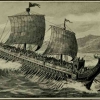Sri Ningsih/Postgraduate Student, MPI Study Program, Class 1-E, Non-Reg, UIN Sunan Gunung Djati Bandung
Educators and education personnel are key factors influencing the quality of education. Teachers play a crucial role in the teaching and learning process, while education personnel, such as principals, administrative staff, and librarians, contribute to creating an effective learning environment. The concept of managing educators and education personnel encompasses planning, recruitment, skills development, performance assessment, and welfare improvements, making it an integral part of educational management.
Current reality shows that the management of educators and education personnel still faces various challenges. The unequal distribution of teachers between urban and remote areas, as well as welfare issues, especially for contract teachers, are real problems. Meanwhile, societal demands and technological advances require PTK (Public Service Teachers) to adapt to these changes.
Assuming that PTK is the primary foundation of educational quality, that well-being contributes to performance, and that skills need to be continuously improved to meet 21st-century demands, PTK management is a key element in the success of educational transformation. However, there is a gap between the ideal concept and its implementation on the ground. Government policies are often inconsistent with implementation, training is not fully relevant to needs, and teacher professionalism is still hampered by administrative burdens and limited facilities. Given these challenges, it is crucial for educational institutions and organizations to understand the management of teaching and education personnel.
First, the Basic Concept of Managing Educators and Education Personnel. In the Educational Human Resource Management module, Prof. Dr. H. A. Rusdiana, Drs., MM defines management as the core of organizing actions, encompassing steps ranging from data collection, planning, organizing, implementation, to monitoring and evaluation. Regarding the Essence of Education and Education Personnel Management, according to several opinions, the management of education and teaching staff is a series of activities starting from the entry of educators into an educational organization and ending with human resource planning, recruitment, selection, placement, compensation, rewards, education and training, and termination of employment. The goal of education and teaching staff management is to utilize educators efficiently and effectively to achieve optimal results in a pleasant atmosphere.
Second, the Nature of Educators and Education Personnel in the Constellation of Education Resource Management. Humans, as educational resources, hold a strategic and crucial position in achieving goals. Regardless of the tools an organization possesses, goals cannot be achieved without the role of humans who can organize everything for maximum results. Therefore, it is necessary to improve the productivity and quality of human resources. To produce quality output, a fundamental step that must be taken is thorough human resource planning during the recruitment process.
Third, the Qualifications and Competencies of Educators and Education Personnel. According to Law No. Law No. 20 of 2003: "Education personnel are members of the community who dedicate themselves and are assigned to support the implementation of education." Educators are educational personnel who function as teachers, lecturers, counselors, learning assistants, instructors, tutors, instructors, facilitators, or other titles appropriate to their specialization. As learning agents, educators are required to possess four basic competencies: pedagogical, personality, social, and professional competencies.
Fourth, the Scope of Educator and Education Personnel Management Activities. This essentially constitutes a complete human resource management cycle, including planning, recruitment, placement, coaching/development, performance appraisal, compensation, and promotion/termination.
Conclusion:
Educators and education personnel play a key role in determining the quality of education, therefore efficient and effective human resource management is crucial to achieving quality educational goals. Human resource management begins with human resource planning, which includes the recruitment stage.
This article is summarized from the teaching module of Human Resource Management of Islamic Education, MSDM Course, Part-2, Lecturer Prof. Dr. H. Ahmad. Rusdiana, Drs., MM.







